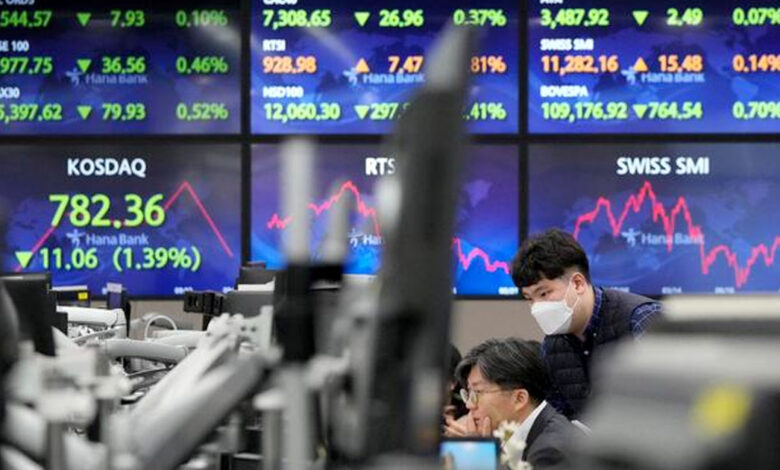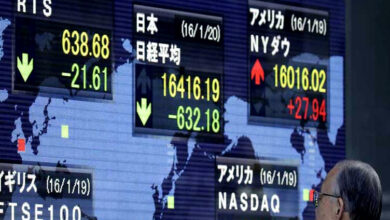Asian Stocks Experience Downturn Due to Economic Worries, While Japan Boosted by Strong Earnings

Asian stock markets closed mostly lower on Friday, following a week of soft economic readings and a bleak outlook for the year, except for Japan’s Nikkei which climbed higher on strong earnings. The Nikkei 225 index surged 0.9% to its highest level since late December, driven by strong earnings from major automakers like Nissan and Honda. Japanese firms, including Toyota and Nintendo, have reported better-than-expected earnings this week, while the country’s five largest trading companies recorded bumper profits. However, SoftBank Group Corp’s shares dropped 3% after the company posted a second consecutive annual loss. The solid performance of Japanese businesses demonstrates that the economy remains stable despite headwinds from slowing growth and high inflation.
On the other hand, most other Asian markets traded lower on concerns about slowing growth in the world’s largest economies. The Shanghai Shenzhen CSI 300 and Shanghai Composite indexes in China declined by 0.6% and 0.4%, respectively, due to disappointing trade and inflation data that raised doubts about a post-COVID economic recovery in the country. China’s economy is cooling after an initial bounce in the first quarter, and this weakness is likely to affect broader Asian economies with high trade exposure to China. Hong Kong’s Hang Seng index declined by 0.1%, South Korea’s KOSPI dropped by 0.5%, and Australia’s ASX 200 index fell by 0.2% due to concerns over China that triggered a fall in metal prices.
Moreover, softer-than-expected U.S. labor data raised concerns about a possible recession, and sticky inflation data led markets to reduce their expectations for potential interest rate cuts by the Federal Reserve this year. As a result, U.S. interest rates are expected to remain high for longer, and investors are likely to avoid risk-heavy assets, limiting the major upside in Asian markets.





